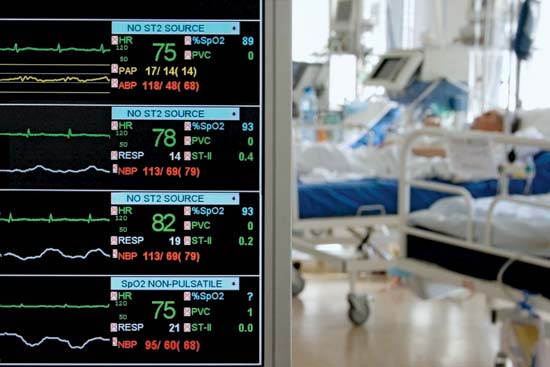[The third post in a series on becoming a Christian physician. Earlier posts are Do You Want to Be a Doctor? and Helping People Is Not Enough].
Clik here to view.

Editor’s note: Lacking joy in the ordinary (and necessary) practice of eating? Bob Trube’s Book Review: Eat with Joy (Rachel Marie Stone. InterVarsity Press, 2013) provides “a taste” of a helpful resource.
After working 24 hours on call in the pediatric ICU, I was exhausted. I wanted to sleep, but friends had recently been reminding me of the health benefits of breakfast, so I dragged myself to a local diner for breakfast and sat at the counter next to a father and his little daughter. “We graduated from the booth to the counter,” he was explaining to the waitress, trying to hide his pride. The little girl looked shyly up, swiveling playfully on the rotating seat as she stretched up to rest her elbows on the countertop. I tried not to glance at them too much, but I was overwhelmed and fascinated by many simple things: the widening of her eyes at the stack of pancakes, the delighted silence as she chewed her way through the syrupy mess, the polite sips of tart orange juice from a well-worn cup.
The hospital tends to “stick” or creep into the outside world. That weekend I had been having nightmares, imagining what it would be like to suddenly find that my eight year old daughter was brain-dead, or my ten year old son was killed in a car accident, or my brother’s cold turned out to be leukemia.* Random and otherwise innocent sounds would make me think of beeping monitors and noisy breathing machines. It seemed difficult to completely extract myself from the hospital. Even when I went to the DMV, the inspector saw me in scrubs and asked, in an attempt to connect, “Do you work in the hospital? Have you seen dead people? . . . Are some of them children? That must be hard; I can’t imagine.”
Clik here to view.

“intensive care unit”. Photograph. Encyclopædia Britannica Online. Web. 27 Sep. 2013. http://www.britannica.com/EBchecked/media/161912/A-monitor-showing-information-about-heart-function-for-multiple-patients
I remembered a night spent in the ICU as a medical student, rushing to leave the hospital after a long shift:
Of my sixteen hours on shift, there were two remaining. Then one. Five minutes. Finally my resident dismissed me. “Go get some rest,” he said kindly, scanning the computer screen and mechanically punching in orders. “All that’s left is paperwork. Nothing more for you.” As per medical student etiquette, I thanked him, wished him a good night, and strode out of the ICU. I walked down a quiet hallway, paneled on both sides by glass. The view on the left faced out into the cold, dark, northeastern night. The right faced the surgical ICU waiting room, which remained lit with muted, tubular fluorescent bulbs. I glanced in and was surprised to see someone still waiting inside.
She was sitting alone. Her eyes were puffy and red, but dry. They looked as if they had been that way for a long time. A thin hospital blanket was draped carelessly around her shoulders, which were hunched forward with a palpable heaviness. Her motionless presence made the room seem more static than if it had been empty. Time himself had decided to stop in and say hello, that there was nothing particularly important for him to do, and that he could afford to wait around for awhile and sink into the vinyl furniture, listening to the ventilation hum while he got things ready for eternity to end next Thursday or perhaps the week after that.
My feet continued to move. I got in my car and felt immensely grateful that I could simply drive away. I could leave this place and the bodies in their beds and the score on the whiteboard and the timeless terror of the waiting room. I could sleep without nightmares and wake up without fearing that moment when I suddenly remember that everything is different now that she’s gone, ohmygod she’s really gone.
Medicine is attractive as a career option because it showcases the extremes of human circumstances and the moments in which we feel most vulnerable, enraged, thrilled, or in despair. There are plenty of exposures to life-altering and frequently traumatic events, and we imagine that such experiences naturally impart a certain authenticity and virtue of experience to those who participate. However, what has transformed me in surprising ways is an unexpected appreciation for the small and ordinary events of life, like that of a little girl enjoying breakfast with her father.
What gain has the worker from his toil? I have seen the business that God has given to the children of man to be busy with. He has made everything beautiful in its time. Also, he has put eternity into man’s heart, yet so that he cannot find out what God has done from the beginning to the end. I perceived that there is nothing better for them than to be joyful and to do good as long as they live; also that everyone should eat and drink and take pleasure in all his toil—this is God’s gift to man. – Ecclesiastes 3
* Not any specific cases, though sadly each is common enough.